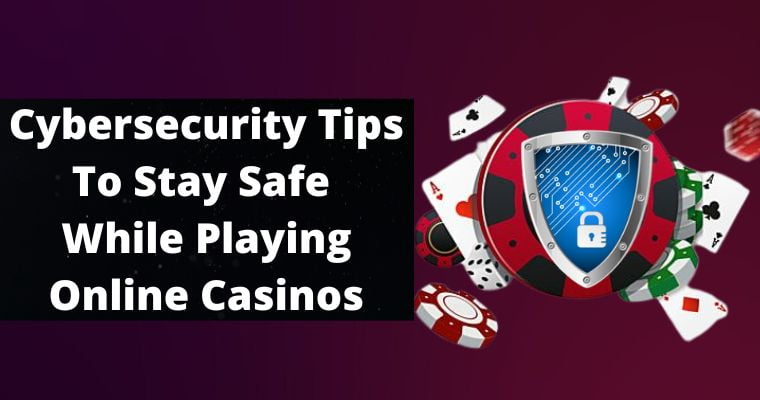The internet, a vast, vibrant and dynamic network of information, can also harbor hidden hazards. From sneaky password stealers to lurking malware, using it safely can feel like a daunting task.
Fear not, our guide equips you with essential internet safety tips, transforming you from a vulnerable target to a savvy cybernaut, ready to engage with the online world with confidence and security.
Table of Contents
25 Important Internet Safety Tips for Online Users
1. Fortress First: Your Personal Information
Your phone number, home address, account passwords – these are the keys to your virtual life. Guard them jealously.
Sharing them casually, even with “friends” online, can leave you vulnerable to scams, identity theft, and worse. Remember, the internet, with its anonymity, breeds deception. What seems like a harmless chat could be a wolf in sheep’s clothing.
2. Use a Secure VPN Connection
VPNs can be a valuable tool for enhancing online security and privacy. VPNs encrypt your internet traffic, making it unreadable to anyone intercepting it. This protects sensitive information like passwords and financial data.
VPNs hide your real IP address, making it harder for websites and trackers to follow your online activity. This can be helpful for protecting your browsing habits and location.
3. Think Before You Share: Photos and Privacy
A picture may be worth a thousand words, but online, it can paint a target on your back. Sharing photos, especially revealing ones, with strangers or acquaintances opens the door to privacy violations and potential manipulation.
Remember, once something is online, it’s almost impossible to truly erase.
4. Use Strong Passwords for Online Accounts
Using strong passwords for your accounts is crucial for safe browsing of internet. A strong password helps protect your personal and sensitive information from unauthorized access by hackers and cybercriminals.
It serves as a crucial barrier against various hacking methods, such as dictionary attacks, brute force attacks, and social engineering.
Randomly generated passwords are considered the strongest. Making passwords long, at least 16 characters, further increases their strength.
Additionally, using a different strong password for each account is recommended to prevent unauthorized access to multiple accounts in case one password is compromised.
5. Beware the Bait: Emails and Downloads
The internet is littered with tempting hooks designed to reel you in. Emails promising free vacations or miracle cures are often phishing scams, tricking you into revealing personal information or downloading malware.
Unknown attachments, no matter how enticing, are best left unopened. They could unleash viruses that can steal your data or hijack your device.
6. Review App Permissions
You have to continuously scrutinize the permissions and security settings of your installed mobile applications. Adjust settings to the most privacy-conscious options, and consider uninstalling apps that request unnecessary access to sensitive information.
App permissions are requests that apps make to access certain features, data, or functions on a user’s device. They are crucial for privacy and security reasons, as they allow users to control what data and functions an app can access on their device.
These permissions are not inherently dangerous, but they have the potential for misuse. Before installing an app, it’s essential to check its safety and ensure it comes from a reputable developer.
7. Shop Only on Secure Sites
When shopping online, it is crucial to prioritize security to safeguard your personal and financial information.
Verify that the website’s URL begins with “https” rather than just “http,” as the “s” signifies a secure and encrypted connection.
Be cautious of shortened URLs, especially when browsing on mobile devices, as they can potentially lead to malicious websites.
8. Mind Your Manners: Online Etiquette
The internet isn’t a free-for-all. Treat others online with the same respect you would in person. Avoid posting messages or images that are hurtful, offensive, or inflammatory.
Remember, the digital world leaves an indelible mark, and your online actions can have real-world consequences.
9. Use Secure Web Browser
Your web browser serves as the gateway to the ocean of online world. It interprets and displays web pages, acting as the first line of defense against malicious content and intrusive tracking.
Choosing a secure browser with built-in features like ad blocking, anti-phishing, and malware protection strengthens your initial barrier.
You can control cookies, disable location tracking, and configure privacy dashboards to understand and limit data sharing practices using a secure web browser.
10. Building Safe Spaces: Parental Guidance
For children, the internet is a playground ripe with possibilities. But without proper guidance, they can easily stumble into harm’s way. As a parent, be their vigilant guide.
Keep the computer in a common area, monitor their online activity, and establish clear rules about website visits, time limits, and online interactions.
Open communication is key. Encourage your children to come to you with any concerns or uncomfortable experiences they encounter online.
11. Use a Good Antivirus
Antivirus software detects and neutralizes malware, harmful programs that can steal your data, damage your device, or disrupt your online activity.
Modern threats evolve constantly, so having a reliable and up-to-date antivirus is crucial to stay ahead of the curve.
Beyond malware protection, many antivirus programs offer additional features like phishing detection, ransomware protection, and vulnerability scanning, further strengthening your online defense.
12. Be Wary of Phishing Attempts
Phishing attempts are fraudulent activities where attackers deceive individuals into providing sensitive information. These attacks often involve emails, messages, or websites that appear legitimate but are designed to trick recipients.
It is crucial to be cautious and never share personal information in response to unsolicited requests, whether over the phone or online.
13. Use of a Secure Wi-Fi Connection
Secure Wi-Fi connections use encryption protocols, such as WPA3, to safeguard data transmission between devices and the router.
This encryption makes it challenging for hackers to intercept and misuse sensitive information. It is recommended to avoid connecting to open, unsecured Wi-Fi networks, as they pose a higher risk of unauthorized access.
14. Secure Your Devices
Make sure your devices are secure by implementing various security measures such as using strong passwords, PINs, passcodes, and additional security options like fingerprint readers or face-scanning technology.
These precautions significantly reduce the risk of cyberattacks and protect your personal data from being compromised by hackers.
15. Set up Parental Controls on Router
To establish parental controls on your router, begin by accessing the router’s admin console through a web browser. Once logged in, navigate to the “Parental Controls” or “Website Filtering” section, where you will typically find options to create an “Access Policy” or similar feature.
In this section, you can configure the Access Policy to either block specific websites or implement scheduled blocking for designated time periods.
After making these adjustments, ensure to save and apply the changes to activate the parental controls on your router. Keep in mind that the exact steps may vary based on your router model.
16. Regularly Back up Your Data
Regular data backups serve as a preventive measure against various threats such as ransomware attacks, human errors, hardware failures, virus attacks, power outages, and natural disasters.
Data backup strategies may include using online backup services with encryption, scheduling regular backups, and storing backup files securely. It’s an essential step to protect your information from potential loss or compromise.
17. Secure Your Webcam
Securing your webcam is crucial for your internet safety because it will prevent unauthorized access and potential privacy breaches. One simple method is to physically cover your webcam when not in use.
This can be done with a webcam cover, tape, or other creative solutions to block the camera’s view.
Use the Windows Device Manager to easily locate and disable your webcam. Restart the computer for the changes to take effect.
18. Report Suspicious Activity
Reporting suspicious activity is especially emphasized for children, who should be instructed to inform a trusted adult immediately if they encounter anything suspicious or uncomfortable during their online activities.
Timely reporting allows for appropriate action to be taken, such as addressing potential threats or blocking harmful content.
Also if you find any suspicious activity in your bank account or credit card then immediately call support team to block those transactions. You can also report the suspicious activity to cyber crime department.
19. Be Careful with Public Computers
When using public computers, it is advisable to exercise caution due to several security risks. One significant concern is the lack of control over the device, making it susceptible to malicious software that can record every keystroke.
Public computers may have spyware or keylogger software installed, posing a threat to the security of sensitive information
20. Regularly Change Passwords
Cybersecurity experts suggest changing passwords every three months, with immediate changes advised if there’s a risk of compromise and reduce the risk of exposure and mitigates various IT security dangers.
Unique passwords for each account are crucial, as compromised credentials are a common entry point for cyber attacks.
21. Avoid Clicks on Suspicious Online Links
Cybercriminals use a variety of methods to trick unsuspecting victims, and one of the most common ways they do this is by using suspicious links.
These links can lead to phishing websites, malware downloads, or other types of malicious activities that can compromise your security and privacy.
22. Online Stranger Awareness
Online stranger awareness is a critical aspect of internet safety, especially for children and teens. Internet provides a platform for individuals to connect, but it also poses risks, including encounters with strangers who may have malicious intentions.
Teaching and promoting online stranger awareness involve educating individuals, particularly young users, on how to recognize and respond to potential dangers and unwanted approaches on the internet.
23. Be Cautious with AI Tools
AI tools play a significant role in collecting and processing personal data, posing potential risks to individuals’ privacy.
These tools rely on data to perform tasks and understand customer needs, which can come from intentional sources, like user-provided information, or unintentional sources, where AI collects data without individuals realizing it, such as through facial recognition.
Additionally, generative AI tools, requiring access to personal or sensitive information, pose risks such as unauthorized access, identity theft, and misuse of personal data, particularly if not properly protected.
24. Review Privacy Settings and Data Policies
Reviewing privacy settings and data policies is crucial to ensure that your personal information is handled appropriately by social media platforms and various online services.
It involves periodically checking and updating the privacy settings on your accounts and understanding the data policies of the services you use.
Regular reviews are recommended, especially when there are changes in your data processing activities, new product or service launches, or when sharing data with new partners or vendors.
Google offer tools to manage and review data privacy settings. You can access your Google Account’s Data & Privacy options to control data from apps and services. It provides a summary of data in your account, allowing you to manage privacy and security settings effectively.
25. Together We Stand: A Network of Support
Staying safe online is a shared responsibility. By being mindful of our own online behavior and educating others, we can create a safer online environment for everyone. Remember, resources are available to help you in case of hacking or cyber threats.
Don’t hesitate to reach out to organizations like the FBI, the U.S. Department of Justice, or the U.S. Department of Homeland Security for assistance and guidance.
Conclusion
The internet is a powerful tool, a gateway to knowledge and connection. By prioritizing safety and awareness, we can unlock its full potential without compromising our well-being.
So, proceed with caution, stay vigilant, and remember, in the vast online environment, knowledge is your life jacket.


